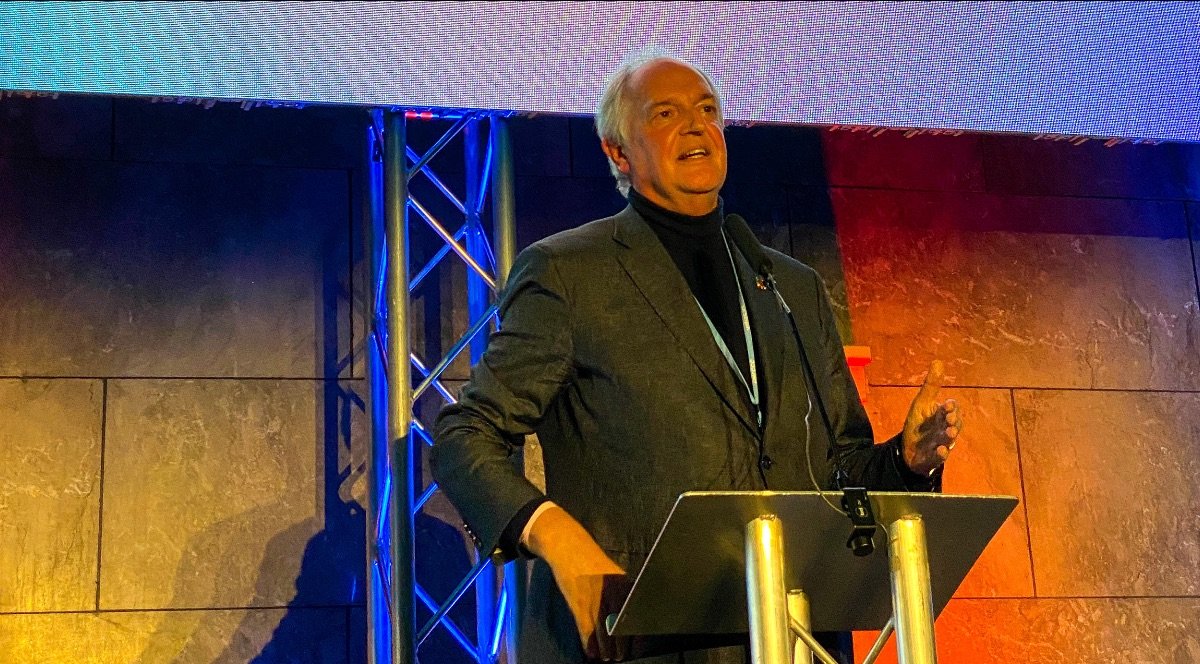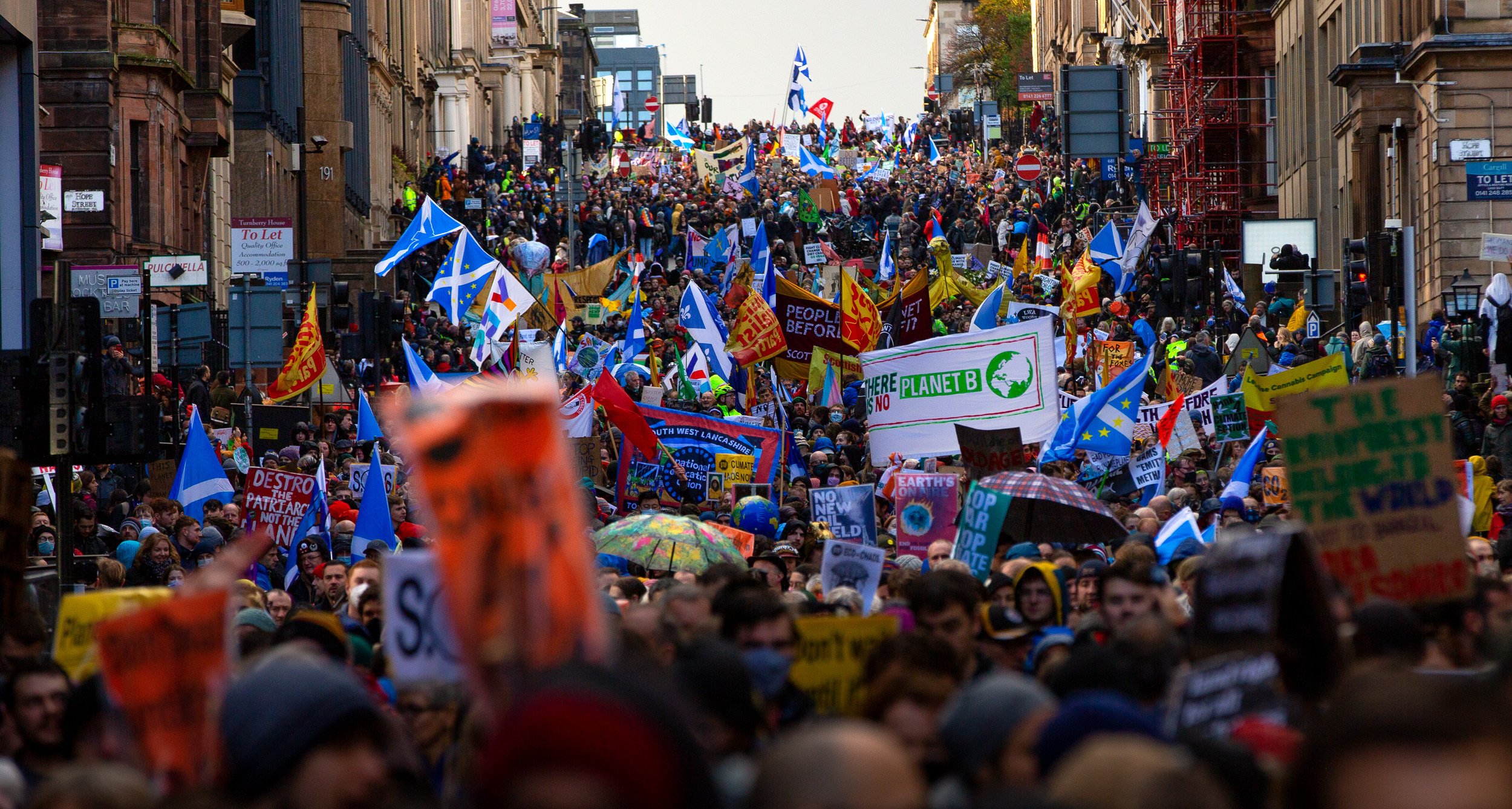A Tale of Four COPs: How business is resetting expectations for climate response
Beyond the requisite skepticism, usual and unusual suspects united in Scotland around an increasingly urgent agenda to mitigate and adapt to climate change. Vector Center was in the middle of it, meeting with companies, policymakers, and stakeholders as the world turned to Glasgow for leadership in the face of the cascading threat of climate change.We are now seeing companies doing the calculus and noting that simply to survive they will have to lead at the nexus of water, food, and energy in the changing climate. That means investing heavily in infrastructure, supply chains, innovations, communities, people, and ecosystems.Is it surprising? Not really. Economists and business leaders noted that inaction for companies and governments has become far more expensive than action. And we’re starting to see that action.Is it enough? Not nearly according to new reports from the United Nations, the global intelligence community, research institutions, and the World Meteorological Organization.“We’re at a dangerous point. If we miss the moment, we miss humanity. We’ve never been so forewarned, we need to translate what can be done into what will be done,” Paul Polman, the former CEO of Unilever, told a small group of business leaders in Glasgow. Polman could have written the script for most executives we met in Glasgow.Some are companies already out front with commitments for carbon, water, biodiversity, and policy engagement, like our partners at Microsoft.Others were there to learn how to transform and catch up. One company we’re working with has a vast footprint and complex global supply chain. Their shareholders are demanding nothing short of full, rapid transformation, from the inside out. We’re honored that our Perception Reality System™ is part of their guidance system.Two universal themes to emerge across the summit are the need for course correction and direction. It's here where Vector Center is working as the common operating platform for customers, offering critical guidance for decision-making and offering new insights on the perception and reality of climate change.
Polman could have written the script for most executives we met in Glasgow.Some are companies already out front with commitments for carbon, water, biodiversity, and policy engagement, like our partners at Microsoft.Others were there to learn how to transform and catch up. One company we’re working with has a vast footprint and complex global supply chain. Their shareholders are demanding nothing short of full, rapid transformation, from the inside out. We’re honored that our Perception Reality System™ is part of their guidance system.Two universal themes to emerge across the summit are the need for course correction and direction. It's here where Vector Center is working as the common operating platform for customers, offering critical guidance for decision-making and offering new insights on the perception and reality of climate change.
Four COPsDifferent Worlds, One Shared Course
Negotiators COPThis was the disappointing COP where negotiators arm-wrestled for two weeks to develop a plan that falls far short of meeting the needs of the moment. But those reflecting on the signed agreement note that now, finally, there is a compass. And that includes cutting back fossil fuels and elevating nature-based solutions.Protestors COPSome 100,000 demonstrators, including youth voice Greta Thunberg, delivered ubiquitous, peaceful pressure on negotiators. NGOs COPNever before have we seen the usually competitive NGOs come together to share ideas, resources, solutions, and build new partnerships. (We’re founding members of the Global Commons Alliance, co-founded with the World Economic Forum, which had among the strongest presence.)Business COPThis was the surprising one, and under-reported by the press. Global brands, holding companies, investment banks, consultancies — they were out in force. These companies represent trillions of dollars that they are redirecting toward sustainability and toward “Net Positive,” transparency, and accountability.
NGOs COPNever before have we seen the usually competitive NGOs come together to share ideas, resources, solutions, and build new partnerships. (We’re founding members of the Global Commons Alliance, co-founded with the World Economic Forum, which had among the strongest presence.)Business COPThis was the surprising one, and under-reported by the press. Global brands, holding companies, investment banks, consultancies — they were out in force. These companies represent trillions of dollars that they are redirecting toward sustainability and toward “Net Positive,” transparency, and accountability.
- Financial institutions commit over $130 trillion to help transform the economy to net zero. (World Economic Forum)
- The Race to Zero campaign, the largest-ever alliance to rally leadership for a zero-carbon recovery, has grown to more than 700 cities, 30 regions, 3,000 businesses, 170 of the biggest investors, and 600 higher education institutions and more - all committed to achieving net-zero-carbon emissions by 2050 at the latest. (World Economic Forum)
J. Carl GanterCEO, Vector Center
